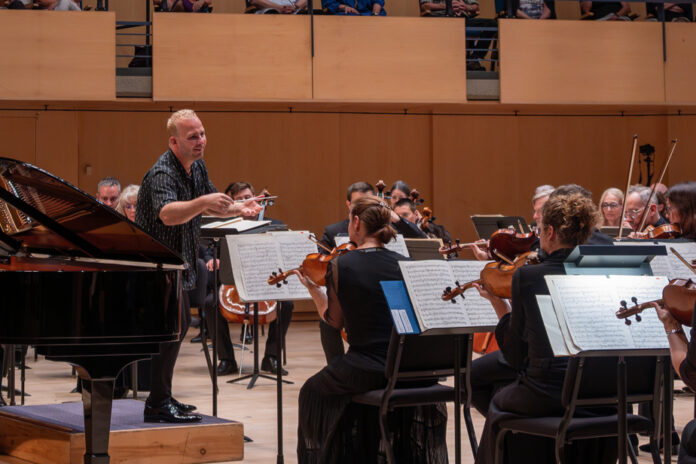The summer visit of the Orchester Métropolitain and its conductor Yannick Nézet-Séguin to Domaine Forget in Charlevoix is now a very popular event, the two concerts this year having been sold out. La Presse attended the one on Sunday afternoon.
The presence of the Montreal orchestra at Saint-Irénée coincides with the end of an orchestral conducting academy that now enjoys a certain prestige, as evidenced by the curriculum vitae of the trainees, who have come from all over the world. The Israeli Orr Guy, who celebrates his 35th birthday this year, chosen by Nézet-Séguin to conduct the Overture to Wagner’s Flying Dutchman, has for example been the assistant of first-rate conductors such as Vassili Petrenko and Juanjo Mena. We are far from a simple conservatory graduate.
Its fiery Overture is done with a sharp, almost “baroque” line. A beautiful temperament to follow, even if the gesture could be more precise in the “andante” section and the contrasts in the succession of the three themes will certainly be more distinct, especially during the first statement of that of the sailors.
Presented without a break, the concert then continued with the soloist of the day (after that of Saturday evening, the cellist Jean-Guihen Queyras), the pianist Charles Richard-Hamelin who, very surprisingly, had not yet, during his some 10 years of career, collaborated with the conductor of the Metropolitan. It was Burleske, by Richard Strauss, who sealed this first meeting, a work that the Lanaudois recently performed in Monte-Carlo and Warsaw.
The pianist, who was only able to rehearse briefly with the orchestra because of problems with his flights, did not seem to us at his best, more dominated by the instrument than the dominant one. He and Nézet-Séguin draw the concertante work towards Brahms with a sound that is probably too strong – both in the piano and in the orchestra – given the character of the score, marked “allegro vivace”.
We miss the sparks, the sparks. This is done, just listen to Argerich or Chamayou on record. The approach adopted, however, allows for splendid moments in the more lyrical passages.
From the start of the first movement, the conductor lovingly sculpts each little phrase of the winds, without falling into a prohibitive stasis. His Sibelius is a large picture book where you breathe in the fresh air and the smell of tall Finnish pines.
The last movement, an Allegro molto, is irresistible by its electric side and the orchestral beauties deployed by the Metropolitan. We come out stronger.
The Orchester Métropolitain and Yannick Nézet-Séguin will be back on July 28 and 29 at the Festival de Lanaudière and on August 2 at the foot of Mount Royal.















